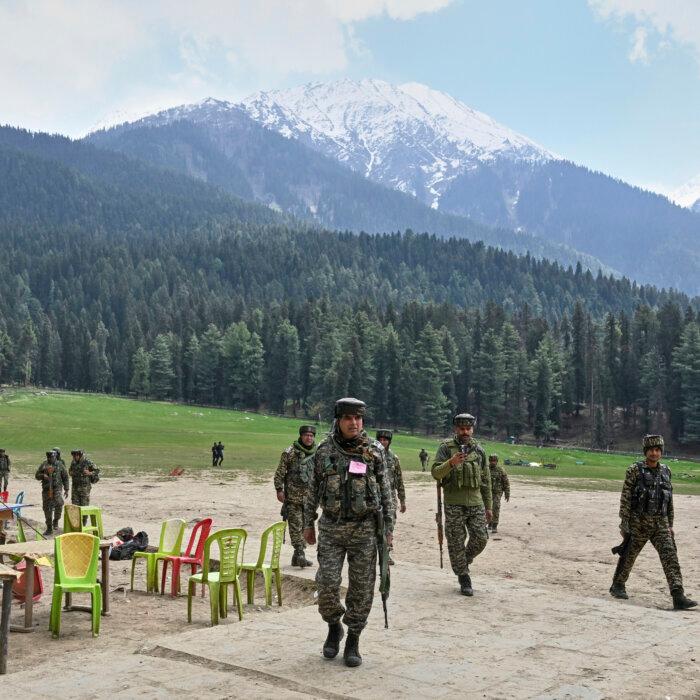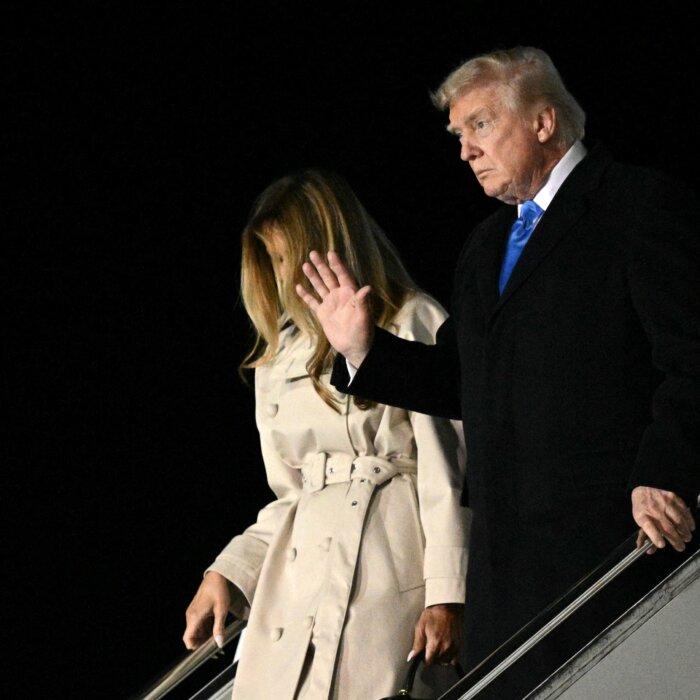There have also been unconfirmed reports that Indian and Pakistani troops exchanged fire along the border in Kashmir.
On April 25 the U.N. issued a statement urging both sides, “to exercise maximum restraint and to ensure that the situation and the developments we’ve seen do not deteriorate any further.”
“Any issues between Pakistan and India, we believe can be and should be resolved peacefully, through meaningful, mutual engagement,” the statement added.
Both India and Pakistan possess nuclear weapons.
Pakistan has denied any connection to Tuesday’s attack, which has been claimed by a previously unknown group called the Kashmir Resistance.
India has suggested it is an offshoot of Lashkar-e-Taiba (LeT), a terrorist group which has in the past attacked the Indian military and police in Kashmir.
‘False Flag’ Claim
Asif went on to claim a terrorist attack in Pulwama, Kashmir, in February 2019 which 44 Indian paramilitary police officers were killed, was a “false flag” operation.He then suggested the latest attack may have also been a false flag operation.
Asked about about whether Pakistan’s Inter Services Intelligence (ISI) had supported terrorist groups, Asif said: “It is very convenient for the big powers to blame Pakistan for whatever is happening in this region. When we were fighting the war on their side way back in the Eighties, against the Soviet Union, all these terrorists of today, they were wining and dining in Washington, and then came the 911 attacks.”
“We have been doing this dirty work for the United States for about three decades and the West, including Britain,” Asif added.
Asif admitted in the interview there was a possibility of “all-out war” with India.
Asked if he had a message for the Indian government, he said: “We are neighbors. We have problems. We have some very serious problems with each other, especially over Kashmir, but we should be solving our problems through negotiations.”
Following reports from India that troops had exchanged fire on the border in the Himalayan region of Kashmir, Pakistan’s ministry of foreign affairs decline to confirm the reports.
Ministry spokesperson Shafqat Ali Khan told a news conference, “I will wait for a formal confirmation from the military before I make any comment.”
Indian and Pakistani forces have frequently clashed in the mountains of Kashmir, which is disputed between the two countries.
It said, “The Indus Waters Treaty of 1960 will be held in abeyance with immediate effect, until Pakistan credibly and irrevocably abjures its support for cross-border terrorism.”
Pakistan has warned India any attempt to stop or divert the flow of water would be considered an “act of war” and met with, “full force across the complete spectrum” of Pakistan’s power.

The treaty, brokered by the World Bank in 1960, allows for the sharing of a river system crucial to both countries.
Farmers in Pakistan rely on water from the Indus River—which flows through the country and empties into the Arabian Sea south of Karachi, Pakistan—and its tributaries to irrigate their land.
The treaty has remained in place despite two wars between India and Pakistan, in 1965 and 1971, and a border skirmish in the Kargil region of Ladakh in 1999.







